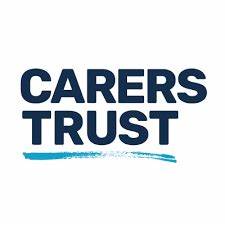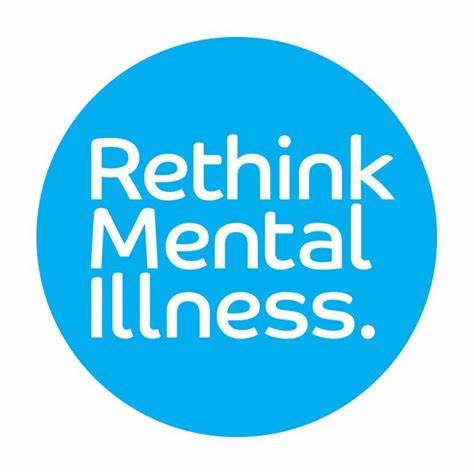Just select the areas you'd like support in by clicking the

Create an emergency plan so you and others are aware what to do in an emergency
Download and read the Bridgit Carer Information Pack
Enquire and complete a Carer Assessment with your Local Authority or Local Carers Service regarding support you need as a carer.
Find out about Carer’s Allowance and other benefits
Register with your GP as a carer, you will have access to health checks and free flu jabs
Speak to your local carer centre for support available
If you provide assistance to or care for another person then as a carer, there are certain things you should do or you should know.
Here are our top tips for all carers, existing and new.
Complete a Carers Assessment (for you) and a Needs Assessment for the one you care for (If you haven’t done so already). It may help to identify the support you and your family require. This can be completed via your Local Authority or your local carers centre.
Find out more about your local carers centre. They have a wide range of support, advice, classes and activities to help you as a carer.
Every year millions of pounds of carers' benefits go unclaimed in the UK. Use a benefits checker such as Turn2Us to see what benefits support you may be entitled to. There are carer specific benefits available such as as Carers Allowance or Carers Credit.
Look into some of the great carer technology which can make caring easier
Juggling work and care can be tricky, as a carer you have employment rights and more employers are recognising the importance of supporting the people in their workforce with caring responsibilities.
Register yourself as a carer with your GP. You will be entitled to health checks as well as other services.
Carers' Trust
The Carers' Trust is the largest provider of comprehensive carers support services in the UK.Age UK
We aim to provide life-enhancing services and vital support to people in later life. We and our local partners deliver a range of services across the UK.Our local Age UKs run a variety of different services. Not all services take place in every area, but all local Age UKs will be able to help you find what you're looking for.
Bridgit
Bridgit Care understand that being an unpaid carer is one of the most important jobs out there. But it can sometimes feel lonely and like you're unsupported. Which is why we're always here to listen and help. We believe technology should be designed with and for carers and the ones they support.Email: contact@bridgit.care
Carers UK
Carers UK give expert advice, information and support to carers in order to make their life better.Carers UK are available to make sure that no matter how complicated your query or your experience, you don't have to care alone.
They have an expert telephone advice and support service for if you want to talk about caring. And if you're looking for answers, they have online information and support.
Carers UK continually campaign for carers rights, alongside having online support groups and volunteering opportunities.
Veterans Gateway
Veterans’ Gateway – information, advice and support for veterans and their families Here for you 24/7, we are the first point of contact for veterans and their loved ones. We can directly refer you to our verified, expert partners including Combat Stress, SSAFA, Poppy Scotland and more.Carers UK Animated Video Guides
Carers UK animation series covers a wide variety of topics to help you understand what support and benefits are available to help you look after someone as well as yourself.Click below to play animation
Carers Allowance Universal Credit Personal Independent Payments Disability Living Allowance Carers Assesments Attendance AllowanceSelect from below to receive advice.
Ask the person you care for if there is anything specific they would like to be added into the plan.
Find a blank emergency plan template and complete it with all your relevant information.
Print it off and keep it in a safe, accessible place. Share it with any relevant people.
When you care for someone, having a contingency plan in place can give you peace of mind if an unforeseen or unplanned event happens and you are not able to continue caring.
To create a good contingency plan that meets your needs and the needs of the person(s) you care for, there is a lot to consider.
Carers UK have developed a simple tool to help you build your own back-up plan.
Fill in your details, spend a few minutes answering the questions and we'll guide you through developing your plan.
https://carersdigital.org/mybackup/
Bridgit Care also have a Emergency Plan you can download, print and complete.
You can access that here within the Carers Information Pack.
Write down key things about your friend or family member’s health and care so that other people will know what to do if you’re unable to care for them. You could include:
- their contact details and next of kin
- their GP and healthcare team's contact details
- their back-up carer’s contact details
- their condition and healthcare needs
- what care and support they need
- how they communicate
- their usual routine
- any things they like or dislike
- any allergies they have
- what medication they take, and where it’s stored
- what they need at mealtimes and any dietary requirements
- if they have a Power of Attorney.
You could also include information about how to get into their home, who has spare keys, and how to use things like the central heating.
Give a copy to your back-up carer, the GP or district nurse, and anyone else involved in their care.
You can also place a copy somewhere obvious in your friend or family member’s home, for example on the fridge.
Source: Marie Curie
Check if a Carers Emergency Card Scheme exists in your locality with your Local Authority or Local Carers Centre.
Make a appointment to create a Carers Emergency Card
In some areas there are emergency card schemes that have been set up for carers, often by the local council/trust or a local carers centre. This might be called:
- Carer card scheme
- Carers emergency card
- Emergency care scheme
In these instances, carers are usually asked to register and, with help from a skilled worker, draw up their emergency plans. The plans are held by the scheme which provides a 24-hour response service. Carers carry a card with the scheme's telephone number and a unique identification number to avoid any personal details appearing on the card.
In some areas they are integrated with police, fire and ambulance services. In the event of an emergency, you or someone with you would call the scheme. An operator would look up your emergency plan and make arrangements for replacement care. This could involve contacting friends or family, or putting in place professional help. Plans will have been shared with them so they know the individual requirements of the person requiring care, such as medication.
Check with your local carers' organisation to see if such a scheme operates in your area.
Source: Carers UK
Carers' Trust
The Carers' Trust is the largest provider of comprehensive carers support services in the UK.Carers UK
Carers UK give expert advice, information and support to carers in order to make their life better.Carers UK are available to make sure that no matter how complicated your query or your experience, you don't have to care alone.
They have an expert telephone advice and support service for if you want to talk about caring. And if you're looking for answers, they have online information and support.
Carers UK continually campaign for carers rights, alongside having online support groups and volunteering opportunities.
Select from below to receive advice.
Select from below to receive advice.
Samaritans
Whatever you're going through, a Samaritan will face it with you. We're here 24 hours a day, 365 days a year.If you are having a difficult time or are worried about someone else we can help you so please feel free to get in touch.
Alzheimers Society
Alzheimer's Society is the UK's leading dementia charity who support people living with dementia.Dementia is the UK's biggest killer. Someone develops it every three minutes and there's currently no cure. Alzheimer's Society are campaigning for change and funding research to find a cure.
They provide support, information and advice to anyone who may need it.
Dementia UK
Provides support, information and advice about living with dementia. It offers a helpline is for anyone with a question or concern about dementia.Mind
When you're living with a mental health problem, having access to the right information is vital.Alternatively you may not be the person living with the mental health problem but wish to support someone who is.
Mind can help with this being a charity that supports and works hard to improve conditions for mental health in the UK.
We believe no one should have to face a mental health problem alone. We'll listen, give you support and advice, and fight your corner.
They offer a number of services such as advice and guidance, you can find by clicking the visit button below.
Next Steps
This website helps you to find the right support while waiting a memory assessment appointment and diagnosis.Together In Dementia Everyday (TIDE)
This is a UK wide involvement network of carers, former carers and health and care professionals who are working together to build a better future for carers of people living with dementia.Select from below to receive advice.
Rethink Mental Illness
Works to help everyone affected by severe mental illness recover a better quality of life. Has a good range of factsheets on all issues related to mental illness.Samaritans
Whatever you're going through, a Samaritan will face it with you. We're here 24 hours a day, 365 days a year.If you are having a difficult time or are worried about someone else we can help you so please feel free to get in touch.
Mind
When you're living with a mental health problem, having access to the right information is vital.Alternatively you may not be the person living with the mental health problem but wish to support someone who is.
Mind can help with this being a charity that supports and works hard to improve conditions for mental health in the UK.
We believe no one should have to face a mental health problem alone. We'll listen, give you support and advice, and fight your corner.
They offer a number of services such as advice and guidance, you can find by clicking the visit button below.
Select from below to receive advice.
NHS Active 10
The Active 10 walking app is a great way to help you monitor and gradually increase your brisk walking levels over time.Brisk walking is walking faster than your usual pace to get your heart pumping. Every minute of activity counts, but aim for at least 10 minutes each day.
A daily brisk walk can make you feel better in so many ways. It can boost your energy, clear your head and lift your mood.
It can also help with many health issues, such as lower back pain and high blood pressure,as well as reducing your risk of serious illnesses like heart disease, anxiety, depression, type 2 diabetes and some cancers.
Healthier Families
Change4Life provides parents with the essential support and aids they need in order to make healthier choices for their families.We know that day to day life can make us busier, less active, and more reliant on convenience and fast food than we used to be.
That is why Change4Life helps families with fun suggestions to help families stay healthy, whether by providing easy recipes for busy weeknights, ideas of great sugar swaps, games to get kids moving or help in understanding food labels.
NHS Couch to 5k
The Couch to 5K programme is designed for beginners to gradually build up their running ability so they can eventually run 5km without stopping in 9 weeks. Whether you've never run before or you just want to get more active, Couch to 5K is a free and easy way of getting fitter and healthier.Probably the biggest challenge a new runner faces is not knowing how or where to start. Often when trying to get into exercise, we can overdo it, feel defeated and give up when we're just getting started. Which can be a major barrier to continuing in your fitness journey.
Couch to 5K is different as it starts with a mixture of running and walking to gradually build up your fitness and stamina.
The plan involves 3 runs a week, with a day of rest in between, and a different schedule for each of the 9 weeks.
Trussell FoodBank
National provider of foodbanks with a search tool to find the one closest to you.Select from below to receive advice.
Rethink Mental Illness
Works to help everyone affected by severe mental illness recover a better quality of life. Has a good range of factsheets on all issues related to mental illness.Samaritans
Whatever you're going through, a Samaritan will face it with you. We're here 24 hours a day, 365 days a year.If you are having a difficult time or are worried about someone else we can help you so please feel free to get in touch.
Mind
When you're living with a mental health problem, having access to the right information is vital.Alternatively you may not be the person living with the mental health problem but wish to support someone who is.
Mind can help with this being a charity that supports and works hard to improve conditions for mental health in the UK.
We believe no one should have to face a mental health problem alone. We'll listen, give you support and advice, and fight your corner.
They offer a number of services such as advice and guidance, you can find by clicking the visit button below.
You have 4 notifications
Complete the following actions:
Care Circle
Once a month it's useful to reflect on how you're doing in different areas.
Just select an area of the care circle to update how you're getting on.
Ask Bridgit on WhatsApp 📱 is your go-to for caregiving advice, accessible anytime, anywhere. 🌍
Although it's a not a real person, Bridgit is equipped with the knowledge to support you. 📚
Simply add your phone number, message your queries - from caring for a relative to self-care tips, to get an instant answer. 💡
Available conversations

Are you looking for help in your caring role?
In a short conversation we'll learn a bit about you and the person you're caring for and then create a simple plan with:
📝 Insights into managing the specific condition of the person you're caring for.
🤝 Guidance on accessing and using these services effectively.
🌍 Links to online resources and communities for carers.

Need Help Making Your Home Safe?
Let's talk about how to make your home safer. We'll help you with:
🏠 Tips Just for You: We'll look at pictures of your house and tell you how to make it safer.
🔍 Find People Who Can Help: We'll share details of local services that might be able to help.
🌍 We'll show you where to find easy guides and tips on the internet to keep your home safe.

Looking for Wellbeing Support?
In our quick chat, we'll discuss your current engagement in physical activities, stress management practices, and hobbies that uplift you. We'll create a plan featuring:
🏃♂️ Suggestions for physical activities suited to your lifestyle.
🧘♀️ Tips on mindfulness and meditation, tailored to how often you can practice.
🎨 Ideas for hobbies and activities that can boost your mood and well-being.

Thinking About Getting Back to Work?
Let's have a quick chat to understand your current situation and your aspirations for returning to work. We'll create a concise plan that includes:
📈 Advice on balancing caregiving responsibilities with work.
🌐 Information on flexible working options and support for carers in the workplace.
📝 Tips on updating your CV and preparing for interviews.

Balancing Work and Care Responsibilities?
In our brief discussion, we'll explore how you can effectively manage both your professional life and caregiving duties. Your personalized plan will include:
⚖️ Strategies for achieving a work-care balance.
📅 Tips on time management and setting priorities.
🤝 Information on workplace rights and support for carers.

Navigating Financial Support & Benefits for Carers?
Join us for a brief chat to delve into the financial aspects of caregiving. We'll help you create a plan encompassing:
💰 Detailed information on benefits and financial support options specifically for carers.
📝 Step-by-step guidance on applying for these benefits.
🛠️ Tools and resources to help manage your finances effectively as a carer.

Considering Taking Time Out as a Carer?
In our short conversation, we'll discuss your need for a break from caregiving. We'll then formulate a plan that includes:
🏖️ Tips on how to plan for time off and respite care options.
🔄 Strategies for ensuring continuity of care during your absence.
🧘♀️ Suggestions for relaxation and rejuvenation activities.
Just select the areas you'd like support in by clicking the

Select from below to add conditions
Frontotemporal dementia is an uncommon type of dementia that causes problems with behaviour and language.
Dementia is the name for problems with mental abilities caused by gradual changes and damage in the brain.
Frontotemporal dementia affects the front and sides of the brain (the frontal and temporal lobes).
Dementia mostly affects people over 65, but frontotemporal dementia tends to start at a younger age. Most cases are diagnosed in people aged 45-65, although it can also affect younger or older people.
Like other types of dementia, frontotemporal dementia tends to develop slowly and get gradually worse over several years.
Symptoms of frontotemporal dementia
Signs of frontotemporal dementia can include:
- personality and behaviour changes – acting inappropriately or impulsively, appearing selfish or unsympathetic, neglecting personal hygiene, overeating, or loss of motivation
- language problems – speaking slowly, struggling to make the right sounds when saying a word, getting words in the wrong order, or using words incorrectly
- problems with mental abilities – getting distracted easily, struggling with planning and organisation
- memory problems – these only tend to occur later on, unlike more common forms of dementia, such as Alzheimer's disease
There may also be physical problems, such as slow or stiff movements, loss of bladder or bowel control (usually not until later on), muscle weakness or difficulty swallowing.
These problems can make daily activities increasingly difficult, and the person may eventually be unable to look after themselves.
Read more about the symptoms of frontotemporal dementia.
Getting medical advice
See a GP if you think you have early symptoms of dementia. If you're worried about someone else, encourage them to make an appointment with a GP and perhaps suggest you go with them.
The GP can do some simple checks to try to find the cause of your symptoms, and they can refer you to a memory clinic or another specialist for further tests if needed.
Read more about getting a dementia diagnosis.
Tests for frontotemporal dementia
There's no single test for frontotemporal dementia.
The following may be needed to make a diagnosis:
- an assessment of symptoms – it's normally helpful to have somebody who knows the person well to give an account of their symptoms, especially as someone with frontotemporal dementia may not be aware of changes in their behaviour
- an assessment of mental abilities – this will usually involve a number of tasks and questions
- blood tests – to rule out conditions with similar symptoms
- brain scans – such as an MRI scan, a CT scan or a PET scan; these can detect signs of dementia and help identify which parts of the brain are most affected, or help rule out other problems with the brain
- lumbar puncture – to test the spinal fluid (fluid that surrounds and supports the brain and spine); this may be useful to rule out Alzheimer's disease as the cause of symptoms
Read more about the tests used to diagnose dementia.
Treatments for frontotemporal dementia
There's currently no cure for frontotemporal dementia or any treatment that will slow it down.
But there are treatments that can help control some of the symptoms, possibly for several years.
Treatments include:
- medicines – to control some of the behavioural problems
- therapies – such as physiotherapy, occupational therapy, and speech and language therapy for problems with movement, everyday tasks and communication
- dementia activities – such as memory cafes, which are drop-in sessions for people with memory problems and their carers to get support and advice
- support groups – who can offer tips on managing symptoms from dementia experts and people living with frontotemporal dementia, and their families
Read more about how frontotemporal dementia is treated.
Outlook for frontotemporal dementia
How quickly frontotemporal dementia gets worse varies from person to person and is very difficult to predict.
People with the condition can become socially isolated as the illness progresses. They may not want to spend time in the company of others, or may behave in rude or insulting ways.
Home-based help will usually be needed at some stage, and some people will eventually need care in a nursing home.
The average survival time after symptoms start is around 8 to 10 years. But this is highly variable and some people live much longer than this.
If you or a loved one has been diagnosed with dementia, remember you're not alone. The NHS and social services, as well as voluntary organisations and specialist support groups, can provide advice and support for you and your family.
Causes of frontotemporal dementia
Frontotemporal dementia is caused by clumps of abnormal protein forming inside brain cells. These are thought to damage the cells and stop them working properly.
The proteins mainly build up in the frontal and temporal lobes of the brain at the front and sides. These are important for controlling language, behaviour, and the ability to plan and organise.
It's not fully understood why this happens, but there's often a genetic link. People who get frontotemporal dementia may have relatives who were also affected by the condition.
If you have a family history of frontotemporal dementia, you may want to consider talking to your doctor about being referred to a geneticist and possibly having a genetic test to see if you're at risk.
There's a lot of research being done to try to improve understanding of the causes of frontotemporal dementia so treatments can be discovered.
If you're interested in helping with research, you can speak to a doctor or register your interest on the Join Dementia Research website.
Other names for frontotemporal dementia
Doctors sometimes use different names to describe frontotemporal dementia. These include:
- FTD
- Pick's disease
- frontal dementia
- frontotemporal lobar degeneration
- behavioural variant frontotemporal dementia
- primary progressive aphasia
- semantic dementia
- progressive non-fluent aphasia
More information
Living with dementia
- Living well with dementia
- Staying independent with dementia
- Dementia activities
- Looking after someone with dementia
- Dementia and your relationships
- Communicating with someone with dementia
- Coping with dementia behaviour changes
Care and support
- Sources of help and support for people with dementia
- Dementia UK: nurse helpline
- Dementia and care homes
- Dementia, social services and the NHS
- Dementia and managing money
- Managing legal affairs for someone with dementia
- Dementia and end of life planning
- Rare Dementia Support
How you can help

Vascular dementia is a common type of dementia caused by reduced blood flow to the brain. It's estimated to affect around 180,000 people in the UK.
Dementia is the name for problems with mental abilities caused by gradual changes and damage in the brain. It's rare in people under 65.
Vascular dementia tends to get worse over time, although it's sometimes possible to slow it down.
Symptoms of vascular dementia
Vascular dementia can start suddenly or begin slowly over time.
Symptoms include:
- slowness of thought
- difficulty with planning and understanding
- problems with concentration
- changes to your mood, personality or behaviour
- feeling disoriented and confused
- difficulty walking and keeping balance
- symptoms of Alzheimer's disease, such as problems with memory and language (many people with vascular dementia also have Alzheimer's disease)
These problems can make daily activities increasingly difficult and someone with the condition may eventually be unable to look after themselves.
Getting medical advice
See a GP if you think you have early symptoms of dementia, especially if you're over 65 years of age.
If it's found at an early stage, treatment may be able to stop vascular dementia getting worse, or at least slow it down.
If you're worried about someone else, encourage them to make an appointment with a GP and perhaps suggest that you go with them.
Your GP can do some simple checks to try to find the cause of your symptoms. They can refer you to a memory clinic or another specialist for further tests if needed.
Find out more about how to get a dementia diagnosis.
Tests for vascular dementia
There's no single test for vascular dementia.
The tests that are needed to make a diagnosis include:
- an assessment of symptoms – for example, whether these are typical symptoms of vascular dementia
- a full medical history, including asking about a history of conditions related to vascular dementia, such as strokes or high blood pressure
- an assessment of mental abilities – this will usually involve several tasks and questions
- a brain scan, such as an MRI scan or CT scan, to look for any changes that have happened in your brain
Find out more about the tests used to diagnose dementia.
Treatments for vascular dementia
There's currently no cure for vascular dementia and there's no way to reverse any loss of brain cells that happened before the condition was diagnosed.
But treatment can sometimes help slow down vascular dementia.
Treatment aims to tackle the underlying cause, which may reduce the speed at which brain cells are lost.
This will often involve:
- eating a healthy, balanced diet
- losing weight if you're overweight
- stopping smoking
- getting fit
- cutting down on alcohol
- taking medicines, such as those used to treat high blood pressure, lower cholesterol or prevent blood clots
Other treatments, including physiotherapy, occupational therapy, dementia activities (such as memory cafes) and psychological therapies, can help reduce the impact of any existing problems.
Outlook for vascular dementia
Vascular dementia will usually get worse over time. This can happen in sudden steps, with periods in between where the symptoms do not change much, but it's difficult to predict when this will happen.
Home-based help will usually be needed, and some people will eventually need care in a nursing home.
Although treatment can help, vascular dementia can significantly shorten life expectancy.
But this is highly variable, and many people live for several years with the condition, or die from some other cause.
If you or a loved one has been diagnosed with dementia, remember that you're not alone. The NHS and social services, as well as voluntary organisations, can provide advice and support for you and your family.
Causes of vascular dementia
Vascular dementia is caused by reduced blood flow to the brain, which damages and eventually kills brain cells.
This can happen as a result of:
- narrowing and blockage of the small blood vessels inside the brain
- a single stroke, where the blood supply to part of the brain is suddenly cut off
- lots of "mini strokes" (also called transient ischaemic attacks, or TIAs) that cause tiny but widespread damage to the brain
In many cases, these problems are linked to underlying conditions, such as high blood pressure and diabetes, and lifestyle factors, such as smoking and being overweight.
Tackling these might reduce your risk of vascular dementia in later life, although it's not yet clear exactly how much your risk of dementia can be reduced.
More information
Living with dementia
- Living well with dementia
- Staying independent with dementia
- Dementia activities
- Looking after someone with dementia
- Dementia and your relationships
- Communicating with someone with dementia
- Coping with dementia behaviour changes
Care and support
- Sources of help and support
- Dementia UK: nurse helpline
- Dementia and care homes
- Dementia, social services and the NHS
- Dementia and managing money
- Managing legal affairs for someone with dementia
- End of life planning
How you can help
Social care and support guide
If you:
- need help with day-to-day living because of illness or disability
- care for someone regularly because they're ill, elderly or disabled, including family members
Our guide to care and support explains your options and where you can get support.

Dementia with Lewy bodies (DLB), also known as Lewy body dementia, is one of the most common types of dementia.
Dementia is the name for problems with mental abilities caused by gradual changes and damage in the brain. It's rare in people under 65.
It tends to develop slowly and get gradually worse over several years.
Symptoms of dementia with Lewy bodies
People with dementia with Lewy bodies may have:
- hallucinations and hearing voices – seeing, hearing or smelling things that are not there
- problems with understanding, thinking, memory and judgement – this is similar to Alzheimer's disease, although memory may be less affected in people with dementia with Lewy bodies
- confusion or sleepiness – this can change over minutes or hours
- slow movement, stiff limbs and tremors (uncontrollable shaking)
- disturbed sleep, often with violent movements and shouting out
- fainting spells, unsteadiness and falls
- depression and anxiety
These problems can make daily activities increasingly difficult and someone with the condition may eventually be unable to look after themselves.
Getting medical advice
See a GP if you think you have early symptoms of dementia, especially if you're over 65 years of age.
If you're worried about someone else, encourage them to make an appointment with a GP and perhaps suggest that you go with them.
The GP can do some simple checks to try to find the cause of your symptoms and they can refer you to a memory clinic or another specialist for further tests if needed.
Tests for dementia with Lewy bodies
There's no single test for dementia with Lewy bodies.
The following may be needed to make a diagnosis:
- an assessment of symptoms – for example, whether there are typical symptoms of dementia with Lewy bodies
- an assessment of mental abilities – this will usually involve a number of tasks and questions
- blood tests to rule out conditions with similar symptoms
- brain scans, such as an MRI scan, CT scan or a SPECT scan – these can detect signs of dementia or other problems with the brain
Treatments for dementia with Lewy bodies
There's currently no cure for dementia with Lewy bodies or any treatment that will slow it down.
But there are treatments that can help control some of the symptoms, possibly for several years.
Treatments include:
- medicines to reduce hallucinations, confusion, drowsiness, movement problems and disturbed sleep
- therapies such as physiotherapy, occupational therapy and speech and language therapy for problems with movement, everyday tasks and communication
- psychological therapies, such as cognitive stimulation (activities and exercises designed to improve memory, problem solving skills and language ability)
- activities for dementia, such as memory cafes (drop-in sessions for people with memory problems and their carers to get support and advice)
Outlook for dementia with Lewy bodies
How quickly dementia with Lewy bodies gets worse varies from person to person.
Home-based help will usually be needed, and some people will eventually need care in a care home.
The average survival time after diagnosis is around 5 to 7 years. But this is highly variable and some people live much longer than this.
If you or a loved one has been diagnosed with dementia, remember that you're not alone. The NHS and social services, as well as voluntary organisations, can provide advice and support for you and your family.
Causes of dementia with Lewy bodies
Dementia with Lewy bodies is caused by clumps of protein forming inside brain cells. These abnormal deposits are called Lewy bodies.
These deposits are also found in people with Parkinson's disease, and they build up in areas of the brain responsible for functions such as thinking, visual perception and muscle movement.
It's not clear why the deposits develop and how exactly they damage the brain. It's thought that part of the problem is the proteins affecting the brain's normal functions by interfering with signals sent between brain cells.
Dementia with Lewy bodies usually occurs in people with no family history of the condition, although there have been very rare cases that seem to run in families.
More information
Living with dementia
- Activities for dementia
- Living well with dementia
- Staying independent with dementia
- Looking after someone with dementia
- Dementia and relationships
- Communicating with someone with dementia
- Coping with dementia behaviour changes
Care and support
- Help and support
- Dementia and care homes
- Dementia, social services and the NHS
- Dementia and managing money
- Managing legal affairs for someone with dementia
- End of life planning
How you can help

Alzheimer's disease is the most common cause of dementia in the UK.
Dementia is the name for a group of symptoms associated with an ongoing decline of brain functioning. It can affect memory, thinking skills and other mental abilities.
The exact cause of Alzheimer's disease is not yet fully understood, although a number of things are thought to increase your risk of developing the condition.
These include:
- increasing age
- a family history of the condition
- untreated depression, although depression can also be one of the symptoms of Alzheimer's disease
- lifestyle factors and conditions associated with cardiovascular disease
Read more about the causes of Alzheimer's disease.
Signs and symptoms of Alzheimer's disease
Alzheimer's disease is a progressive condition, which means the symptoms develop gradually over many years and eventually become more severe. It affects multiple brain functions.
The first sign of Alzheimer's disease is usually minor memory problems.
For example, this could be forgetting about recent conversations or events, and forgetting the names of places and objects.
As the condition develops, memory problems become more severe and further symptoms can develop, such as:
- confusion, disorientation and getting lost in familiar places
- difficulty planning or making decisions
- problems with speech and language
- problems moving around without assistance or performing self-care tasks
- personality changes, such as becoming aggressive, demanding and suspicious of others
- hallucinations (seeing or hearing things that are not there) and delusions (believing things that are untrue)
- low mood or anxiety
Read more about the symptoms of Alzheimer's disease.
Who is affected?
Alzheimer's disease is most common in people over the age of 65.
The risk of Alzheimer's disease and other types of dementia increases with age, affecting an estimated 1 in 14 people over the age of 65 and 1 in every 6 people over the age of 80.
But around 1 in every 20 people with Alzheimer's disease are under the age of 65. This is called early- or young-onset Alzheimer's disease.
Getting a diagnosis
As the symptoms of Alzheimer's disease progress slowly, it can be difficult to recognise that there's a problem. Many people feel that memory problems are simply a part of getting older.
Also, the disease process itself may (but not always) prevent people recognising changes in their memory. But Alzheimer's disease is not a "normal" part of the ageing process.
An accurate and timely diagnosis of Alzheimer's disease can give you the best chance to prepare and plan for the future, as well as receive any treatment or support that may help.
If you're worried about your memory or think you may have dementia, it's a good idea to see a GP.
If possible, someone who knows you well should be with you as they can help describe any changes or problems they have noticed.
If you're worried about someone else, encourage them to make an appointment and perhaps suggest that you go along with them.
There's no single test that can be used to diagnose Alzheimer's disease. And it's important to remember that memory problems do not necessarily mean you have Alzheimer's disease.
A GP will ask questions about any problems you're experiencing and may do some tests to rule out other conditions.
If Alzheimer's disease is suspected, you may be referred to a specialist service to:
- assess your symptoms in more detail
- organise further testing, such as brain scans if necessary
- create a treatment and care plan
Read more about diagnosing Alzheimer's disease.
How Alzheimer's disease is treated
There's currently no cure for Alzheimer's disease, but medicines are available that can help relieve some of the symptoms.
Various other types of support are also available to help people with Alzheimer's live as independently as possible, such as making changes to your home environment so it's easier to move around and remember daily tasks.
Psychological treatments such as cognitive stimulation therapy may also be offered to help support your memory, problem solving skills and language ability.
Read more about treating Alzheimer's disease.
Outlook
People with Alzheimer's disease can live for several years after they start to develop symptoms. But this can vary considerably from person to person.
Alzheimer's disease is a life-limiting illness, although many people diagnosed with the condition will die from another cause.
As Alzheimer's disease is a progressive neurological condition, it can cause problems with swallowing.
This can lead to aspiration (food being inhaled into the lungs), which can cause frequent chest infections.
It's also common for people with Alzheimer's disease to eventually have difficulty eating and have a reduced appetite.
There's increasing awareness that people with Alzheimer's disease need palliative care.
This includes support for families, as well as the person with Alzheimer's.
Can Alzheimer's disease be prevented?
As the exact cause of Alzheimer's disease is not clear, there's no known way to prevent the condition.
But there are things you can do that may reduce your risk or delay the onset of dementia, such as:
- stopping smoking and cutting down on alcohol
- eating a healthy, balanced diet and maintaining a healthy weight
- staying physically fit and mentally active
These measures have other health benefits, such as lowering your risk of cardiovascular disease and improving your overall mental health.
Read more about preventing Alzheimer's disease.
Dementia research
There are dozens of dementia research projects going on around the world, many of which are based in the UK.
If you have a diagnosis of dementia or are worried about memory problems, you can help scientists better understand the disease by taking part in research.
If you're a carer for someone with dementia, you can also take part in research.
You can sign up to take part in trials on the NHS Join Dementia Research website.
More information
Dementia can affect all aspects of a person's life, as well as their family's.
If you have been diagnosed with dementia, or you're caring for someone with the condition, remember that advice and support is available to help you live well.
Read more about:
Social care and support guide
If you:
- need help with day-to-day living because of illness or disability
- care for someone regularly because they're ill, elderly or disabled - including family members
Our guide to care and support explains your options and where you can get support.

Contents
Dysphagia is where you have problems swallowing. It's usually caused by certain medicines or another condition, such as acid reflux or a stroke.
Check if it's dysphagia
Some people with dysphagia have problems swallowing certain foods or drinks, while others cannot swallow at all.
Signs of dysphagia include:
- coughing or choking when eating or drinking
- bringing food back up, sometimes through the nose
- a feeling that food is stuck in your throat or chest
- a gurgly, wet-sounding voice when eating or drinking
You may also drool and have problems chewing your food.
Over time, dysphagia can also cause symptoms such as weight loss, dehydration and repeated chest infections.
Causes of dysphagia
Dysphagia is usually caused by another health condition and can happen at any age.
Common causes of swallowing problems include:
- some medicines, such as antipsychotics
- having a learning disability
- a cleft lip and palate in babies
- heartburn and acid reflux, especially in children or people who have gastro-oesophageal reflux disease
- problems with your breathing caused by conditions like chronic obstructive pulmonary disease (COPD)
- a condition that affects the nervous system or brain, such as cerebral palsy, a stroke, dementia or multiple sclerosis
- cancer, such as mouth cancer or oesophageal cancer
Ask for an urgent GP appointment or get help from NHS 111 if:
You, your child or someone you care for:
- has difficulty swallowing
- coughs or chokes while eating or drinking
- feels like something's stuck in the throat after eating
- keeps bringing food or milk back up, sometimes through the nose
- cries a lot or arches their back when feeding
- has a wet, gurgly voice after eating or drinking
- is short of breath after eating or drinking
- gets lots of chest infections
You can call 111 or get help from 111 online.
Treatments for dysphagia
Your GP will examine you and may refer you to a specialist for further tests.
You may also be referred to a speech and language therapist or a dietitian for advice about swallowing and your diet.
Treatment for dysphagia depends on what's causing it and how severe it is.
If your swallowing problems are being caused by a condition like acid reflux, the problem may get better on its own.
But if the cause is longer term, you may need specialist treatment to make eating and drinking as safe as possible.
This may include:
- medicines to treat acid reflux
- swallowing therapy with a speech and language therapist
- making changes to what you eat and drink, such as softer foods and using thickener in drinks
- using special spoons, plates and cups
- feeding tubes through your nose or a hole into your stomach
- surgery to widen your oesophagus
- injections to relax the muscles in your oesophagus and allow food and drink to reach the stomach

Contents
Diabetes is a condition that causes a person's blood sugar level to become too high.
There are 2 main types of diabetes:
- type 1 diabetes – a lifelong condition where the body's immune system attacks and destroys the cells that produce insulin
- type 2 diabetes – where the body does not produce enough insulin, or the body's cells do not react to insulin properly
Type 2 diabetes is far more common than type 1. In the UK, over 90% of all adults with diabetes have type 2.
High blood sugar that develops during pregnancy is known as gestational diabetes. It usually goes away after giving birth.
Non-diabetic hyperglycaemia (pre-diabetes)
Many people have blood sugar levels above the normal range, but not high enough to be diagnosed as having diabetes. This is known as non-diabetic hyperglycaemia, or pre-diabetes.
People with non-diabetic hyperglycaemia are at greater risk of developing type 2 diabetes, but the risk can be reduced through lifestyle changes.
If you have non-diabetic hyperglycaemia, you may be eligible for the NHS Diabetes Prevention Programme. The programme helps people make lasting lifestyle changes and has been shown to help prevent type 2 diabetes.
People with non-diabetic hyperglycaemia are also recommended to have a blood test every year to monitor their blood sugar levels.
It's very important for diabetes to be diagnosed as early as possible because it's likely to get worse if left untreated and can cause long-term health problems.
When to see a GP
Visit your GP as soon as possible if you experience the main symptoms of diabetes, which include:
- feeling very thirsty
- peeing more frequently than usual, particularly at night
- feeling very tired
- weight loss and loss of muscle bulk
- itching around the penis or vagina, or frequent episodes of thrush
- blurred vision
Type 1 diabetes can develop quickly over weeks or even days.
Weight loss is common in people with type 1 diabetes when it first develops and before it's treated, but it's less common in people with type 2 diabetes.
Many people have type 2 diabetes for years without realising because the early symptoms tend to be general, or there are no symptoms at all.
Causes of diabetes
The amount of sugar in the blood is controlled by a hormone called insulin, which is produced by the pancreas (a gland behind the stomach).
When food is digested and enters your bloodstream, insulin moves glucose out of the blood and into cells, where it's broken down to produce energy.
However, if you have diabetes, your body is unable to break down glucose into energy. This is because there's either not enough insulin to move the glucose, or the insulin produced does not work properly.
There are no lifestyle changes you can make to lower your risk of type 1 diabetes.
You can reduce the risk of type 2 diabetes through healthy eating, regular exercise and achieving a healthy body weight.
You may be more at risk of type 2 diabetes if you:
- are living with overweight or obesity
- do not have a healthy diet
- have a family history of type 2 diabetes
- are of Asian, Black African or African Caribbean origin
- take certain medicines such as steroids for a long time
- have high blood pressure
- have had gestational diabetes during pregnancy
Living with diabetes
If you're diagnosed with diabetes, you'll need to eat healthily, take regular exercise and have regular checks including blood tests.
You can use the BMI healthy weight calculator to check whether you're a healthy weight.
Try to quit smoking if you smoke, and cut down on alcohol.
People diagnosed with type 1 diabetes also require regular insulin injections for the rest of their life.
Type 2 diabetes can get worse over time and people living with type 2 diabetes often need medicine, usually in the form of tablets or injections.
However, some people can put their type 2 diabetes into remission by losing weight, where their blood sugar is reduced below the diabetes range. Some people are able to do this through a low-calorie diet, but this is not suitable for everyone, so it's important to get medical advice first.
Read about:
Diabetic eye screening
Everyone with diabetes aged 12 years old or over should be invited to have their eyes screened regularly.
If you have diabetes, your eyes are at risk from diabetic retinopathy, a condition that can lead to sight loss if it's not treated.
Screening, which includes a 30-minute check to examine the back of the eyes, is a way of diagnosing diabetic retinopathy and detecting the condition early where possible so it can be treated more effectively. In many people, this can stop it affecting their vision or reduce the chance of it getting worse.
It's important to see a doctor if you notice any problems with your eyesight. Do not wait for your next screening appointment.
Read more about diabetic eye screening.
Diabetic foot problems
Diabetes can damage the nerves in your feet and cause a loss of feeling. It can also reduce the blood supply to your feet. This means you may not notice if your foot is sore or injured, and foot injuries do not heal as well. This can lead to ulcers and infections, and sometimes amputations can be needed in serious cases.
Adults with diabetes should have their feet checked every year by a healthcare professional.
It's important to see a healthcare professional as soon as possible if you notice any problems with your feet.
You can read more about diabetes and foot problems on the Diabetes UK website.

What is high blood pressure?
Blood pressure is recorded with 2 numbers. The systolic pressure (higher number) is the force at which your heart pumps blood around your body.
The diastolic pressure (lower number) is the resistance to the blood flow in the blood vessels between heartbeats when blood is pumped around your heart.
They're both measured in millimetres of mercury (mmHg).
As a general guide:
- high blood pressure is considered to be from 140/90mmHg or more if your reading was taken at a pharmacy, GP surgery or clinic (or an average of 135/85mmHg if it was taken at home)
- if you're over the age of 80, high blood pressure is considered to be from 150/90mmHg or more if your reading was taken at a pharmacy, GP surgery or clinic (or an average of 145/85mmHg if it was taken at home)
- ideal blood pressure is usually considered to be between 90/60mmHg and 120/80mmHg, while the target for people over the age of 80 years old is below 150/90mmHg (or 145/85mmHg if it was taken at home)
Blood pressure readings from 121/81mmHg to 139/89mmHg could mean you're at risk of developing high blood pressure if you do not take steps to keep your blood pressure under control.
Everyone's blood pressure will be slightly different. What's considered low or high for you may be normal for someone else.
Understanding your blood pressure reading
If you have a recent blood pressure reading use the NHS Check your blood pressure tool to understand what your reading means. You'll also get information about what to do next.
Risks of high blood pressure
If your blood pressure is too high, it puts extra strain on your blood vessels, heart and other organs, such as the brain, kidneys and eyes.
Persistent high blood pressure can increase your risk of a number of serious and potentially life-threatening health conditions, such as:
- heart disease
- heart attacks
- strokes
- heart failure
- peripheral arterial disease
- aortic aneurysms
- kidney disease
- vascular dementia
If you have high blood pressure, reducing it even a small amount can help lower your risk of these health conditions.
Check your blood pressure
The only way of knowing whether you have high blood pressure is to have a blood pressure test.
All adults over 40 years old are advised to have their blood pressure checked at least every 5 years.
Some people from African, Afro-Caribbean or South Asian heritage may have high blood pressure at a younger age and are encouraged to get their blood pressure checked earlier.
Getting this done is easy and could save your life.
You can get your blood pressure tested at a number of places, including:
- at most pharmacies
- at your GP surgery
- as part of your NHS Health Check
- in some workplaces
You can also check your blood pressure yourself with a home blood pressure monitor.
Get a free blood pressure check
If you're aged 40 and over, and are eligible, you may be able to get a free blood pressure check at a local pharmacy.
Things that can increase your risk of getting high blood pressure
It's not always clear what causes high blood pressure, but there are things that can increase your risk.
You might be more at risk if you:
- are overweight
- eat too much salt and do not eat enough fruit and vegetables
- do not do enough exercise
- drink too much alcohol or coffee (or other caffeine-based drinks)
- smoke
- have a lot of stress
- are over 65 years old
- have a relative with high blood pressure
- are of black African or Black Caribbean descent
- live in a deprived area
Making healthy lifestyle changes can sometimes help reduce your chances of getting high blood pressure and help lower your blood pressure if it's already high.
High blood pressure is also sometimes caused by an underlying health condition or taking a certain medicine.
Treatment for high blood pressure
Doctors can help you keep your blood pressure to a safe level using:
- lifestyle changes
- medicines
What works best is different for each person.
Talk to your doctor to help you decide about treatment.
This patient decision aid from the National Institute for Health and Care Excellence (NICE) (PDF, 132kb) can also help you to understand your treatment options.
Lifestyle changes to reduce blood pressure
These lifestyle changes can help prevent and lower high blood pressure:
- reduce the amount of salt you eat and have a generally healthy diet
- cut back on alcohol
- lose weight if you're overweight
- exercise regularly
- cut down on caffeine
- stop smoking
Some people with high blood pressure may also need to take 1 or more medicines to stop their blood pressure getting too high.
Medicines for high blood pressure
If you're diagnosed with high blood pressure, your doctor may recommend taking 1 or more medicines to keep it under control.
These come as tablets and usually need to be taken once a day.
Common blood pressure medicines include:
- ACE inhibitors – such as enalapril, lisinopril, perindopril and ramipril
- angiotensin-2 receptor blockers (ARBs) – such as candesartan, irbesartan, losartan, valsartan and olmesartan
- calcium channel blockers – such as amlodipine, felodipine and nifedipine or diltiazem and verapamil
- diuretics – such as indapamide and bendroflumethiazide
- beta blockers – such as atenolol and bisoprolol
- alpha blockers – such as doxazosin
- other diuretics – such as amiloride and spironolactone
The medicine recommended for you will depend on things like how high your blood pressure is, your age and your ethnicity.

Contents
Check if you have bowel incontinence
You might have bowel incontinence if you cannot control when you poo. Symptoms of bowel incontinence include:
- poo leaking out without you being able to stop it
- feeling like you need to poo, but not being able to get to the toilet in time
- not being able to get fully clean after going to the toilet
- seeing streaks or stains of poo in your underwear
See a GP if:
- you think you have bowel incontinence
- you have any changes in your poo that are not getting better, such as having softer poo, diarrhoea or constipation that is not usual for you
Try not to be embarrassed. The doctor will be used to talking about these symptoms.
Ask for an urgent GP appointment or get help from NHS 111 if:
- your poo is black or dark red
- you have bloody diarrhoea
You can call 111 or get help from 111 online.
How bowel incontinence is diagnosed
If a GP thinks you might have bowel incontinence they:
- will talk to you about your symptoms
- might ask to examine you by feeling your tummy (abdomen) and feeling inside your bottom with a finger (they'll be wearing gloves)
- might ask you to give a poo sample
They might refer you to a specialist for more tests such as:
- blood tests
- a colonoscopy (a test to check inside your bowels using a thin, flexible tube with a small camera inside it)
- an ultrasound scan
Treatment for bowel incontinence
The treatment you have for bowel incontinence will depend on what's causing your symptoms and how severe they are.
Treatment from a GP
A GP might recommend:
- a review of your diet and any medicines you take
- medicines to make you poo less often or medicines to soften your poo (laxatives)
- incontinence pads or pants
- plugs that go inside your bottom
If these things do not help, they might refer you to a specialist service.
Treatment from a specialist service
A specialist incontinence service can:
- review your diet and any medicines you take
- recommend exercises to strengthen your pelvic floor and your bottom
- recommend techniques to help empty the lower part of your bowels
If these things do not help, you might be referred for surgery.
Surgery for bowel incontinence
You may have surgery if other treatments have not helped or your symptoms are severe.
Surgery can include:
- repairing your muscles in your bottom that control when you poo (anal sphincter)
- making a new anal sphincter using muscle taken from your thigh
- putting an artificial sphincter in your bottom, so you can control when you poo
- putting a small device under your skin in your bottom that uses electrical pulses to help you control when you poo
- having a small tube (catheter) put into your tummy through a small hole to flush water through, which helps empty your bowels
- making a small opening in your tummy (stoma) to attach a pouch to collect your poo
The surgeon will explain the risks and benefits of the operation, and what will happen.
Find out more about hospital treatment
Support if you have bowel incontinence
Get help from NHS talking therapies
Having bowel incontinence can affect your mental health. It can help to talk about how you're feeling.
You can get talking therapies for free on the NHS. These services can help you find ways to cope.
Help is available in person, by video, over the phone or as an online course.
Support from charities
There are also national charities that can offer support and information about bowel incontinence.
Bladder & Bowel Community
Information and support for people with bladder and bowel conditions.
- Website: www.bladderandbowel.org
- Email: help@bladderandbowel.org
- Bladder & Bowel Community: online contact form
- Bladder & Bowel Community: online support services
- Bladder & Bowel Community: Facebook support group
Bladder & Bowel UK
Information and support for people with bladder and bowel conditions.
- Website: www.bbuk.org.uk
- Helpline: 0161 214 4591
- Bladder & Bowel UK: online contact form
Get a RADAR key
RADAR keys unlock lots of accessible public toilets in places like cafés, restaurants and shopping centres.
It might help to get one, so you can easily access a toilet when you're in public. You can usually get one from a charity.
Causes of bowel incontinence
Bowel incontinence can happen for lots of reasons and is common. Try not to be embarrassed.
You may get it for reasons such as if you:
- eat certain foods or drinks, for example spicy foods or drinks with caffeine in them
- have weaker muscles around your bottom – this can happen as you get older or because of things like hormonal changes or childbirth
- have a health condition that affects your digestive system such as constipation, irritable bowel syndrome (IBS) or Crohn's disease
- have a health condition that makes you less aware of when you need to poo, such as dementia, a learning disability, a stroke or damage to the nerves in your spine
It can be a result of more than one of these things.
Children can also get bowel incontinence. Sometimes they avoid going to the toilet, which means their poo hardens and runny poo leaks out, or they do not make it to the toilet in time.

Anxiety is a feeling of unease, such as worry or fear, that can be mild or severe.
Everyone has feelings of anxiety at some point in their life. For example, you may feel worried and anxious about sitting an exam, or having a medical test or job interview.
During times like these, feeling anxious can be perfectly normal.
But some people find it hard to control their worries. Their feelings of anxiety are more constant and can often affect their daily lives.
Anxiety is the main symptom of several conditions, including:
- panic disorder
- phobias, such as agoraphobia or claustrophobia
- post-traumatic stress disorder (PTSD)
- social anxiety disorder (social phobia)
The information in this section is about a specific condition called generalised anxiety disorder (GAD).
GAD is a long-term condition that causes you to feel anxious about a wide range of situations and issues, rather than 1 specific event.
People with GAD feel anxious most days and often struggle to remember the last time they felt relaxed.
As soon as 1 anxious thought is resolved, another may appear about a different issue.
Symptoms of generalised anxiety disorder (GAD)
GAD can cause both psychological (mental) and physical symptoms.
These vary from person to person, but can include:
- feeling restless or worried
- having trouble concentrating or sleeping
- dizziness or heart palpitations
When to get help for anxiety
Although feelings of anxiety at certain times are completely normal, see a GP if anxiety is affecting your daily life or causing you distress.
Your GP will ask about your symptoms and your worries, fears and emotions to find out if you could have GAD.
What causes generalised anxiety disorder (GAD)?
The exact cause of GAD is not fully understood, although it's likely that a combination of several factors plays a role.
Research has suggested that these may include:
- the genes you inherit from your parents
- having a history of stressful or traumatic experiences, such as domestic violence, child abuse or bullying
- having a painful long-term health condition, such as arthritis
- having a history of drug or alcohol misuse
But many people develop GAD for no apparent reason.
Who's affected
GAD is a common condition.
More women are affected than men, and the condition is more common in people from the ages of 35 to 55.
How generalised anxiety disorder (GAD) is treated
GAD can have a significant effect on your daily life, but several different treatments are available that can ease your symptoms.
These include:
- talking therapies – you can get talking therapies like cognitive behavioural therapy (CBT) on the NHS; you do not need a referral from a GP and you can refer yourself for talking therapies service in your area – read more about how to find an NHS talking therapies service
- medication – such as a type of antidepressant called selective serotonin reuptake inhibitors (SSRIs)
With treatment, many people are able to control their anxiety levels. But some treatments may need to be continued for a long time and there may be periods when your symptoms worsen.
Self-help for generalised anxiety disorder (GAD)
There are also many things you can do yourself to help reduce your anxiety, such as:
- going on a self-help course
- exercising regularly
- stopping smoking
- looking after your physical health

Select from below to add conditions
Select from below to add medicines
Select from below to add medicines
















